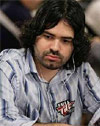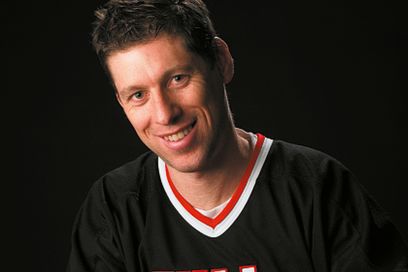By Aaron Bartley
 One of the most important lessons in poker has nothing to do with how to play ACEs in late position or how to adjust to a maniac on the seat number three. It is the way of managing money to grow as quickly as possible by taking the least risk possible.
One of the most important lessons in poker has nothing to do with how to play ACEs in late position or how to adjust to a maniac on the seat number three. It is the way of managing money to grow as quickly as possible by taking the least risk possible.
Several highly skilled players have already been penniless repeatedly simply because they were playing at levels too high, too quickly and too long. How do I make this problem ever happen you to you? This is not a matter of being finer than the others, but only a matter of discipline.
The most important step is to be honest with oneself. You should know your relative strengths at all times. Suppose you are in a part of $1 / $2 No-Limit Hold ' em, you've experienced a very good evening and whether you decide to try your luck in a part of $5 / $10. Your bankroll is at $1,500, but you must bring at least $500 to the table to be comfortable at this higher level.
Why should you risk a third of your bankroll at a table to play the $5 / $10? For starters, your bankroll is not sufficient for this limit; most important, you should know that players are often better at this limit to the lower limits. (This is obviously not always true I agree, but it is still prudent here to assert that more high limits means stronger players).
It is here that self-control comes into play. A few small errors could be a disaster for your bankroll and see six months of hard work soar in six hours of stupid game is enough to affect any mind.
The safest thing is to continue to do what you used to do. You beat very well the $1 players / $2 and you do each week a profit. Continue to prove you can beat this limit. While you do this, your bankroll continues to increase gradually. Beat a limit for 6 days does not prove much. Beat the same limit for 6 months is even greater that you beat this limit and you're a winning player.
Start to record your results. You could buy a software to make and create your own database. Enter all the information after each session (limit, duration session, profits, losses). Review this information every week. Attempt to locate the bad passes. Only if that long makes you play at a limit and you're winning, you should think about mount limit.
Above all, you should know where your money goes at all times, and make good use. Ask yourself: is what I take too many risks here being this limit? If the answer is Yes, do what you must do to be responsible and change table. The month after that, you'll thank you did.
 One of the most important lessons in poker has nothing to do with how to play ACEs in late position or how to adjust to a maniac on the seat number three. It is the way of managing money to grow as quickly as possible by taking the least risk possible.
One of the most important lessons in poker has nothing to do with how to play ACEs in late position or how to adjust to a maniac on the seat number three. It is the way of managing money to grow as quickly as possible by taking the least risk possible.Several highly skilled players have already been penniless repeatedly simply because they were playing at levels too high, too quickly and too long. How do I make this problem ever happen you to you? This is not a matter of being finer than the others, but only a matter of discipline.
The most important step is to be honest with oneself. You should know your relative strengths at all times. Suppose you are in a part of $1 / $2 No-Limit Hold ' em, you've experienced a very good evening and whether you decide to try your luck in a part of $5 / $10. Your bankroll is at $1,500, but you must bring at least $500 to the table to be comfortable at this higher level.
Why should you risk a third of your bankroll at a table to play the $5 / $10? For starters, your bankroll is not sufficient for this limit; most important, you should know that players are often better at this limit to the lower limits. (This is obviously not always true I agree, but it is still prudent here to assert that more high limits means stronger players).
It is here that self-control comes into play. A few small errors could be a disaster for your bankroll and see six months of hard work soar in six hours of stupid game is enough to affect any mind.
The safest thing is to continue to do what you used to do. You beat very well the $1 players / $2 and you do each week a profit. Continue to prove you can beat this limit. While you do this, your bankroll continues to increase gradually. Beat a limit for 6 days does not prove much. Beat the same limit for 6 months is even greater that you beat this limit and you're a winning player.
Start to record your results. You could buy a software to make and create your own database. Enter all the information after each session (limit, duration session, profits, losses). Review this information every week. Attempt to locate the bad passes. Only if that long makes you play at a limit and you're winning, you should think about mount limit.
Above all, you should know where your money goes at all times, and make good use. Ask yourself: is what I take too many risks here being this limit? If the answer is Yes, do what you must do to be responsible and change table. The month after that, you'll thank you did.




